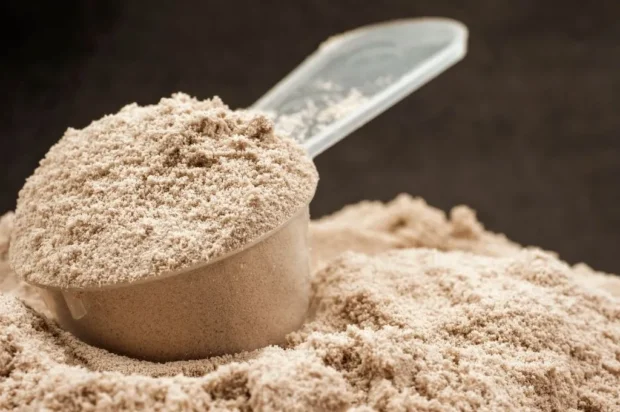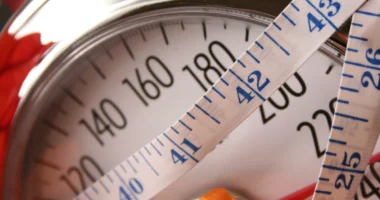If you’re a fitness enthusiast or someone who relies on protein powder as part of your dietary routine, you may be wondering, “Can you bring protein powder on a plane?” The good news is that, in most cases, you can bring protein powder with you while traveling. However, there are certain guidelines and regulations you need to be aware of to ensure a smooth travel experience. In this article, we’ll explore the rules set by the Transportation Security Administration (TSA) and provide you with helpful tips for traveling with protein powder.
Understanding TSA Rules for Protein Powder

When it comes to bringing protein powder on a plane, it’s important to adhere to the TSA’s guidelines. The TSA allows you to bring protein powder in both your carry-on luggage and checked bags. However, there are a few key points to keep in mind:
- Container Size: Can You Bring Protein Powder on a Plane? If you plan to bring protein powder in your carry-on bag, remember that all liquids, gels, and powders must adhere to the TSA’s 3-1-1 rule. This means that containers must be 3.4 ounces (100 milliliters) or smaller and fit comfortably in a single quart-sized (approximately one-liter) clear plastic bag. Each traveler is limited to one such bag.
- Security Check: Can You Bring Protein Powder on a Plane? When going through the security checkpoint, you’ll need to remove the bag containing your protein powder from your carry-on and place it in a separate bin for screening. This ensures that it receives proper scrutiny during the X-ray screening process.
- Special Considerations: Can You Bring Protein Powder on a Plane? It’s worth noting that if your protein powder container exceeds the 3.4-ounce limit, you should pack it in your checked luggage to avoid any potential issues at the security checkpoint. This applies to larger containers or if you plan to bring a significant amount of protein powder with you.
Tips for Packing Protein Powder for Air Travel

To make your travel experience hassle-free, here are some practical tips for packing and traveling with protein powder:
- Check with Airline Policies: While the TSA allows protein powder, it’s always wise to check with your specific airline for any additional rules or restrictions they may have. Some airlines may have specific guidelines on the quantity or packaging of powders, so it’s best to be well-informed before your trip.
- Use Sealed Containers: To prevent any accidental spills or mess, it’s recommended to use protein powder containers that are securely sealed. Double-check that the lids are tightly closed, and consider using extra layers of protection, such as placing the container in a resealable plastic bag.
- Organize and Label: Keeping your protein powder containers well-organized in your luggage can make it easier to locate them during security checks. Additionally, consider labeling the containers with your name or a recognizable sticker to avoid confusion or mix-ups.
- Bring Essential Amounts: While you may want to ensure you have an adequate supply of protein powder for your trip, it’s practical to bring only the amount you’ll need. Packing excessive quantities can add unnecessary weight to your luggage and increase the risk of spills or breakage.
- Consider Single-Serving Packets: If you prefer a more convenient option, consider purchasing single-serving packets of protein powder. These pre-portioned packets not only comply with the TSA’s rules but also eliminate the need for measuring and packing bulk containers.
- Store in Cool, Dry Place: Protein powder can be sensitive to moisture and heat, so it’s advisable to store it in a cool, dry place during your trip. Avoid exposing it to direct sunlight or extreme temperatures, as it may affect the quality and consistency of the powder.
Remember, rules and regulations can vary, so it’s crucial to stay informed and up-to-date with any changes. If you have any doubts or specific concerns, it’s recommended to reach out to the airline or relevant authorities for further clarification.
Other Considerations for Traveling with Protein Powder

While it’s generally allowed to bring protein powder on a plane, there are a few additional considerations to keep in mind:
- International Travel: Can You Bring Protein Powder on a Plane?
If you’re traveling internationally, it’s crucial to familiarize yourself with the specific customs and regulations of the destination country. Some countries may have stricter rules regarding the importation of food products, including protein powder. Check the customs guidelines or contact the embassy or consulate of the country you’re visiting to ensure compliance with their regulations.
- Packaging and Labeling: Can You Bring Protein Powder on a Plane?
To facilitate the security screening process and minimize potential confusion, it’s recommended to keep protein powder in its original packaging. Manufacturers typically include ingredient lists and nutritional information on the packaging, which can be useful for any security inspections or inquiries. However, if you choose to transfer the protein powder into a different container, ensure that it’s clearly labeled to avoid any misunderstandings.
- Check Local Restrictions: Can You Bring Protein Powder on a Plane?
While the TSA regulations apply to domestic travel within the United States, it’s important to note that individual airports or local authorities may have additional restrictions or guidelines. Before your trip, research and familiarize yourself with the specific rules at your departure and arrival airports. Some airports may have specific procedures or requirements for screening protein powder, so it’s wise to be prepared and aware of any potential differences.
- Consult with Your Healthcare Provider: Can You Bring Protein Powder on a Plane?
If you have specific dietary needs or concerns related to your protein powder, it’s always advisable to consult with your healthcare provider before traveling. They can provide personalized advice based on your individual health condition and any potential interactions or considerations related to your protein powder or other supplements.
Maintaining a Healthy Diet and Fitness Routine While Traveling

Traveling can disrupt our usual routines, including our diet and fitness habits. However, it’s important to prioritize your health and well-being even while on the go. Here are some tips to help you maintain a healthy lifestyle during your travels:
- Plan Ahead
Before your trip, take some time to plan your meals and snacks. Research restaurants or food options at your destination that align with your dietary preferences and goals. Consider packing some portable and nutritious snacks, such as protein bars or individually packaged nuts, to have on hand during your journey.
- Choose Protein-Rich Foods
While protein powder can be a convenient option, you can also obtain sufficient protein absorption from whole food sources. Opt for lean meats, poultry, fish, eggs, legumes, and dairy products that are readily available at most restaurants or grocery stores. These protein-rich foods will support your fitness goals and help you feel satiated while traveling.
- Stay Hydrated
Hydration is crucial for overall well-being, especially when traveling. Carry a reusable water bottle and aim to drink enough water throughout the day. Staying hydrated not only helps with digestion and nutrient absorption but also keeps your energy levels up, ensuring you can make the most of your trip.
- Incorporate Exercise
While it may be challenging to maintain your regular exercise routine while traveling, there are still plenty of ways to stay active. Take advantage of hotel gyms or fitness facilities, go for walks or jogs in local parks, or explore the city by foot or bicycle. You can also engage in bodyweight exercises that require minimal equipment, such as push-ups, squats, and planks, in the comfort of your accommodation.
- Prioritize Rest and Recovery
Traveling can be tiring, so it’s important to prioritize rest and recovery. Aim for adequate sleep each night to allow your body to recharge and rejuvenate. If you’re dealing with jet lag or disrupted sleep patterns, consider establishing a calming bedtime routine, avoiding electronic devices before bed, and creating a sleep-friendly environment in your accommodations.
By being mindful of your dietary choices, staying active, and taking care of your overall well-being, you can maintain a healthy lifestyle even while traveling. Remember to listen to your body’s needs, make conscious choices, and enjoy the journey.
Remember, the guidelines provided in this article are based on general regulations and recommendations, but it’s essential to stay informed about any updates or changes from relevant authorities. By being prepared and knowledgeable, you can ensure a seamless and stress-free travel experience while maintaining your protein intake.




